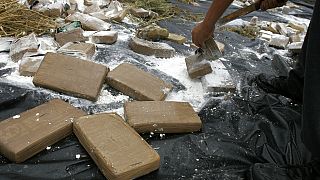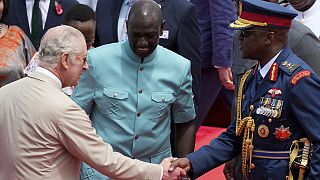Switzerland
Refugee flows from South Sudan into Ugandan and other neighbouring countries have “doubled in the past ten days”, the UN’s refugee agency, UNHCR said on Tuesday.
According to the UNHCR, a total of 60,000 South Sudanese have fled the country since violence broke out between forces loyal to president Salva Kiir and his deposed first vice president Reik Machar early in July.
In total 60k people have fled #SouthSudan since violence broke out in Juba last month – 52k in #Uganda alone. pic.twitter.com/dh90QC1OOj
— UNHCRNews (@RefugeesMedia) August 2, 2016
The majority of the refugees have fled to neighbouring Uganda whiles others have gone to Kenya and northwards to Sudan.
“Obviously we are responding to refugee flows into Uganda in particular, that have doubled in the past ten days, which brings the total in Uganda to 52,000 who have entered the country since the renewed violence started three weeks ago. Kenya has reported the arrival of 1,000 refugees during that same 10-day period and 7,000 have fled to Sudan. So basically that totals over 60,000 people,” UNHCR Spokeswoman, Melissa Fleming told a press briefing in Geneva on Tuesday.
Nearly 900,000 South Sudanese have fled the country since December 2013, the UNHCR notes.
But the refugees’ journey has been all but smooth sailing as “refugees have also reported that armed groups operating across different parts of South Sudan are looting villages, murdering civilians and forcibly recruiting young men and boys into their ranks.”
The UNHCR said the refugees also bring disturbing reports of armed groups operating on the roads to Uganda who are preventing people from fleeing South Sudan.
Around 85% of refugees arriving in #Uganda are women & children under 8. Most are from Eastern Equatoria #SouthSudan pic.twitter.com/lCYMVb2RMU
— UNHCRNews (@RefugeesMedia) August 2, 2016
More than 85 percent of the refugees arriving in Uganda for instance, the UNHCR said are women and children under eighteen. Most of the children have either lost a parent or both parents and are mostly from Eastern Equatoria. There are small numbers of refugees also coming from the capital Juba and the Upper Nile state.
Several of the refugees pouring into Kenya and Uganda, have been arriving with children who are said to be severely malnourished as a result of the humanitarian crisis.
UNICEF on Monday reported that millions of people in South Sudan were struggling to feed themselves as malnutrition rates in seven of the country’s ten states has reached the emergency threshold.
The crisis has been compounded by an outbreak of cholera which the World Health Organisation (WHO) says has claimed 21 lives so far across the country.
“As of the end of July a total of 586 cholera cases, including 21 deaths, have been reported nationwide. The majority of these have been recorded in Juba County where an average of 35 new admissions are being recorded daily,” WHO spokeswoman Fadela Chaib said.
The UNHCR says its access to some 2,000 Ethiopian refugees in the Gorom camp near the capital Juba, has been severely affected as a result of insecurity on the road and the presence of military camps in the area.
It said aid agencies are also unable to cater to the needs of some 250,000 refugees from Sudan, Ethiopia and the Democratic Republic of Congo who live in South Sudan.
South Sudan, the world’s youngest country was engulfed in a 2-year war fought along ethnic lines mainly between supporters of president Salva Kiir and his long time rival, Reik Machar.
An estimated 2.6 million South Sudanese have been forcibly displaced as a result of conflict in the world’s youngest country.












01:57
South Sudanese parties adopt code of conduct ahead of December elections
01:19
Sudan: over 25 million people facing humanitarian crisis, says UNHCR
00:56
South Sudan president presses on holding elections as scheduled
01:40
UN assembly adopts resolution backing ongoing efforts to eliminate 'blood diamonds' trade
01:55
Two armed groups in the DR Congo pledge to better protect civilians
01:15
South Sudan schools to reopen from April 2nd as heatwave subsides